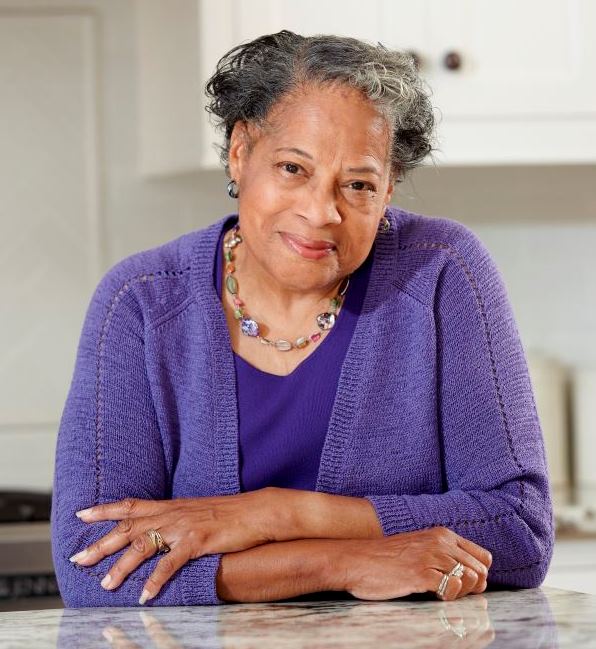How Seniors Can Care for Their Skin
As they say, the one thing you can count on in life is change. That certainly applies to our skin as we begin to age.
 How Does the Skin Change?
How Does the Skin Change?
As they say, the one thing you can count on in life is change. That certainly applies to our skin as we begin to age. Years of exposure from the sun’s ultraviolet (UV) light diminishes the skin’s elasticity, while the natural thinning of the epidermis (surface layer) causes the skin to have a more transparent appearance. Dry, itchy skin and wrinkles are also quite common. These changes, and others, can affect the skin even more depending on environmental and lifestyle factors, as well as health conditions such as kidney disease and diabetes.
While these changes may not seem like cause for alarm, they can allow seniors to become much more susceptible to certain skin infections and diseases. A bacterial infection or parasitic infestation can lead to serious harm and may even be life-threatening if not treated properly. Fortunately, there are a number of tips senior clients can follow to help protect and improve their skin.
Senior Skin Care Tips
- Protection from the sun:
- Apply a broad-spectrum, water-resistant sunscreen with SPF 30 or higher to any exposed skin. Reapply every two hours, or more often if you’ve been sweating heavily or if you’ve been exposed to water.
- Avoid going outside when the sun’s UV rays are most intense. During the summer, this is usually between 10am and 4pm
- Wear a wide-brimmed hat to protect the face, neck, and eyes.
- Wear UV-blocking sunglasses.
- When bathing:
- Only use lukewarm water when bathing as hot water can remove the skin’s natural oils, and be sure to keep baths or showers to no longer than 10 minutes.
- Replace bar soap with fragrance-free cleanser emollient.
- Trade bath brushes or other scrubbing tools for a soft cotton washcloth.
- Apply fragrance-free moisturizer (formulated for dry skin) after bathing and periodically during the day.
- Avoid using bath oil when bathing as it can greatly increase the risk of slips and falls.
- Examine your skin often for skin cancer by using the ABCDEs of melanoma (the deadliest form of skin cancer). If you identify any moles or brown spots with the following, contact a board-certified dermatologist right away.
- A – Asymmetry: One side doesn’t match the other.
- B – Border: The border around the spot or mole is poorly defined or irregular.
- C – Color: There are multiple colors (tan, brown, and black) present.
- D – Diameter: The diameter is greater than 6mm.
- E – Evolving: The spot is changing in size, shape, or color.
- Other tips:
- Use a humidifier to keep the indoor humidity level somewhere between 44-60%. The dryer the air, the more likely the skin will become dried out and itchy.
- When possible, avoid perfumes, colognes, or other products that contain fragrances.
- Avoid using sunlamps and tanning beds.
- Use gloves when doing any gardening or cleaning to help prevent the skin from being exposed to harmful chemicals or other irritants.
Comfort Keepers®Can Help
Our skin is technically considered our largest organ, and yet we don’t always give it the attention and care it deserves. Doing so is crucial as we get older, and it may even help reduce our risk of serious illness and death. At Comfort Keepers®, our job is to help senior clients live as comfortably and safely as possible – and to that end, our trusted caregivers will help them follow the best practices above. We can also provide transportation to and from any scheduled dermatology appointments, or other locations.
For more information about how we can help senior clients, contact your local Comfort Keepers location today.
References:
WebMD. “Skin Conditions As You Age.” Reviewed by Debra Jaliman, MD. Web. 2018.
WebMD. “The Effects of Aging on Skin.” Reviewed by Debra Jaliman, MD. Web. 2018.
American Academy of Dermatology. “How to care for your skin in your 60s and 70s.” Web. 2018.
Melanoma Research Foundation. “The ABCDEs of Melanoma.” Web. 2018.
Sign up to receive helpful info right to your inbox.
We understand choosing an in-home care provider can be a difficult decision, and we want to make your journey as easy as possible. We're here to support you by providing helpful senior care tips and information on in-home care and senior health and wellbeing topics.
Start a Job with a Purpose
Uplifting training and support for you every step of the way.
Apply to be a caregiver







